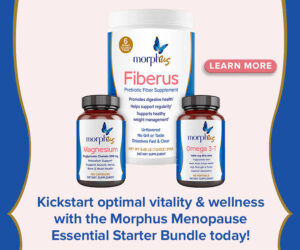
Pregnant women make an effort to eat better, exercise appropriately, and give up bad habits like smoking and drinking, all in the hopes of delivering a perfectly healthy baby. But these same women may be exposing themselves and their fetuses to an onslaught of chemicals through their daily beauty regime.
Although there are hundreds of chemicals present in the grooming products that the average woman uses each day, below are some of the worst offenders during pregnancy.
Nail Polish
Many pregnancy books, friends, and family encourage pregnant women to pamper themselves before the baby arrives. “Go get a manicure and pedicure,” they may say. Unfortunately, they do not realize that the nail polish contains three troublesome chemicals that can be very damaging to you and your baby’s health: toluene, formaldehyde, and phthalates.
Toluene is problematic to health because it damages the functioning of the brain causing dizziness, nausea, confusion, and headaches among other more serious symptoms. It can negatively impact the respiratory tract and lower red blood cell counts. In animals, it has been linked to birth defects.
Formaldehyde, also in most nail polishes, poses a danger because it is highly toxic. It is considered a carcinogen (causes cancer) and will also damage the liver.
Phthalates or dibutyl phthalates (DBP) are another problematic ingredient in most nail polishes. According to the Environmental Working Group (EWG), a non-profit research and advocacy organization that campaigns to educate consumers about the health risks of cosmetics, emphasizes that studies have linked phthalates to underdeveloped genitals, future infertility, and other reproductive system problems in newborn boys. To further emphasize the health concerns, Congress decided to ban the use of some phthalates in toys earlier this year due to mounting evidence that they disrupt hormones, especially in boys, leading to possible reproductive issues.
If going without a pedicure seems impossible for you, try tracking down the few companies that sell nail polish free of the above chemicals (one of the higher-end brands that is free of DBP, toluene, and formaldehyde is Butter London).
Lipstick
Most women like to apply a coat of lipstick before they head out the door; it’s a quick way to brighten the face without much time or effort investment. The problem is that lipstick contains lead. The Campaign for Safe Cosmetics was the first to investigate the lead content present in lipsticks. With much pressure from the organization and the public, the FDA did a follow up study in 2009 which confirmed that lead was present in all of the samples of lipstick it tested at levels ranging from 0.09 to 3.06 ppm.
Pregnant women need to understand that there are no safe levels of lead exposure. The U.S. Centers for Disease Control and Prevention states: “No safe blood lead level has been identified.” The agency recommends avoiding all types of lead exposure. With lipstick, the build up of lead in the body-because of multiple daily applications-can cause considerable exposure.
What is the problem with lead? It is a neurotoxin and therefore damages the brain and nervous system. This can lead to learning and behavioral disorders in both mother and child, as well as interfere with the proper development in the fetus.
Instead, try an all-natural beeswax lip balm.
Perfume or Fragrance
Nobody wants to smell badly. This is likely ingrained in our minds from childhood when one of the worst insults someone could give you was, “You smell!” To prevent that fear from ever becoming a reality, many of us douse ourselves in fragrance-filled products or with perfume.
The problem with perfumes and fragrances is they have the potential of containing hundreds of chemicals. Most perfumes contain problem ingredients such as allergens, phthalates, sensitizers (which damage the immune system), and neurotoxins (which damage the brain and nervous system). Legally, however, these chemicals do not need to be labeled in the ingredient list as they are considered trade secrets.
But "unscented" or "scent-free" products aren't always the best option; many still contain chemicals to mask unpleasant smells from other chemicals.
Hair Spray
Using hair spray as part of your grooming regime may also have some health consequences. Hair spray also contains a type of phthalate-among other chemicals-and has been implicated in a male genital development issue called hypospadias, a condition in which the urinary tract grows on the underside of the penis.
Most women do not need to use hair spray as part of their daily routine ,so this is an example of one product you should just leave alone.
When pregnant, it is prudent to utilize as many natural and organic products as possible. But do not simply take front-of-label claims at face value; read the ingredient list carefully to verify that no harsh chemicals are being used. Many health food stores now contain a body care area that features many healthier alternatives to conventional products. Spend some time asking staff what their favorite products are or what customer favorites tend to be-this will help in ensuring you find products that actually work.
More on Natural Pregnancy from Naturally Savvy









